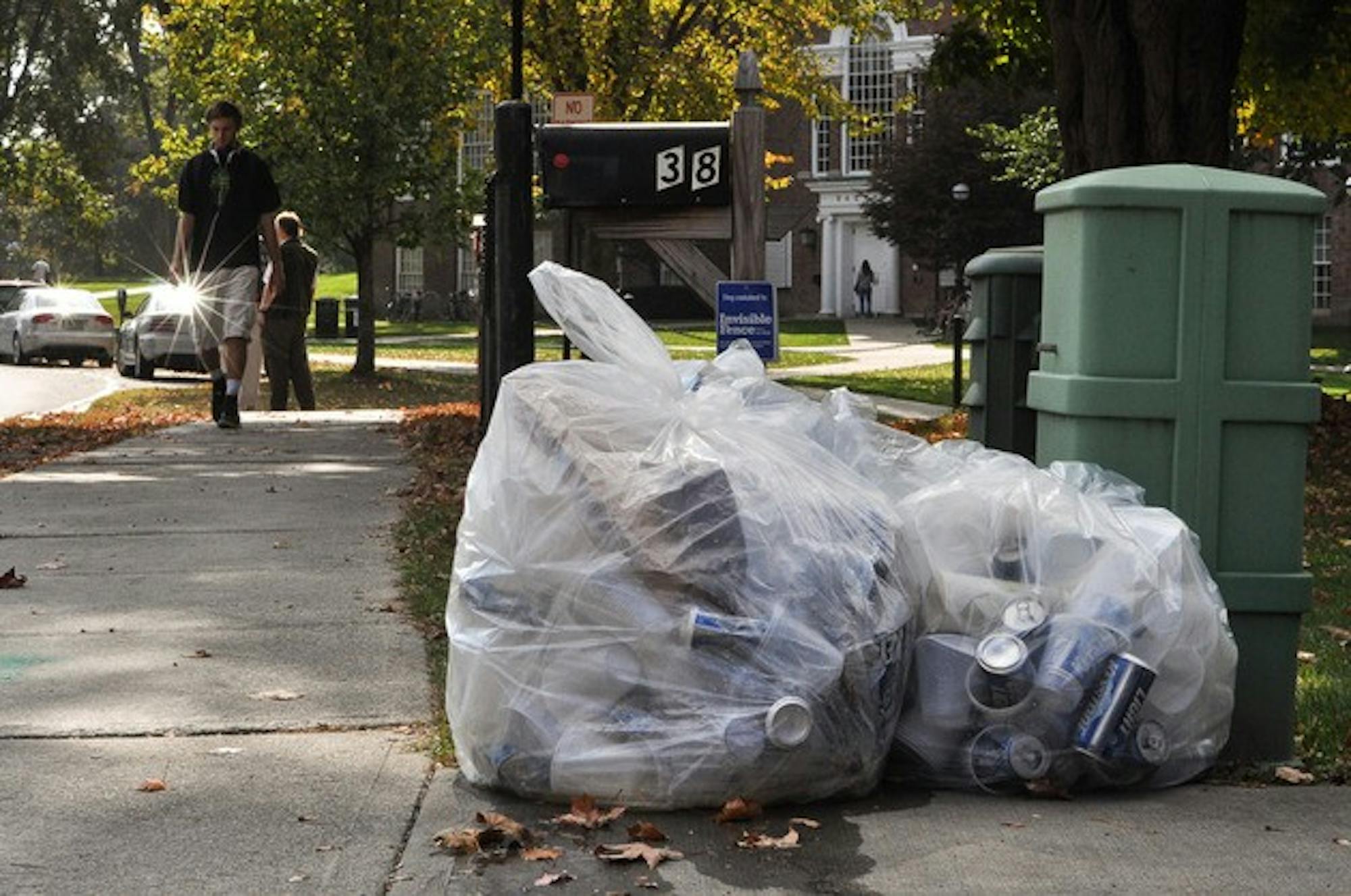Former Eco-rep and member of the 2013 Big Green Bus crew Patrick Saylor '16 said he sees a few areas in which the big weekend creates a negative impact on the environment, including the bonfire and the amount of waste accumulated. Saylor said that the waste comes from more than the alcohol consumption, as there are a number of waste-producing events held on campus.
"It becomes an issue of evaluating what your priorities are at any given moment," Saylor said. "If you value both sustainability and various traditions across campus, it can definitely create a conflict of interest in terms of decisions and actions that you end up taking and the resulting degree to which they're sustainable as well."
Environmental impact may increase during Homecoming because of conflicts in ideals and the shifting of priorities.
"It's hard to simultaneously really appreciate the bonfire and be entirely focused on being as sustainable as possible," Saylor said.
Vicky Pan '16, an Eco-rep and a member of several sustainability groups, said she respects the tradition of the bonfire.
"It looks really cool," Pan said. "It's a really special moment. That's a lot of wood we're burning, but it's a tradition that we do every year."
Jack Stinson, of Stinson's, sees a noticeable increase in the amount of alcohol purchased during Homecoming weekend.
"I don't want to blame everything on the alumni, but one of the things that is so unique about the College is that alumni do come back to visit and celebrate," Stinson said. "We've got a lot of older classes popping back and maybe not drinking a lot, maybe one beer a night, and one beer each [for] 5,000 people adds up," Stinson said.
The additional alcohol sales lead to considerably more waste in terms of cans by the end of the weekend.
"Most of the frats I know don't recycle at all," Pan said. "Most frats, I know for a fact, just throw the cans out. They just put them into bags and leave them on the streets. It's so bad."
Andrew Roberts '14, social chair of Alpha Chi Alpha fraternity, said his house uses sustainable practices, including using zero-sort bags for recycling and utilizing kegs instead of beer cans whenever possible. Additionally, Roberts said that Homecoming weekend actually only produces "about two weekends' worth of trash total."
"You typically don't see older alumni staying up in the basement until 5 a.m. or really try to play pong because they used to play a game with only four cups back in the day, so I'd say Green Key is a bigger environmental risk than Homecoming would be," Roberts said.
Bill Mitchell '79 has a potential solution for this waste. Mitchell recently published a column in The Dartmouth regarding his campaign to "Ban the Can" or ease up the policy on kegs so that they become more attractive to fraternities.
Using self-collected data from surveys and fraternity spending, Mitchell discovered that 1.7 million beers are consumed annually at Dartmouth, 75 percent of which is in the form of cans, creating 19.8 tons of waste.
"A disproportionate share of that waste comes on the high holy weekends," Mitchell said.
Currently, fraternities must inform the College when they are using kegs, making it an unappealing option to students. Mitchell believes that these regulations should be lifted in order to discourage the use of cans and the waste they create.
Pan supports the move toward kegs from a sustainability standpoint.
"If we're going to do something about it, there should just definitely be something that's long-term," she said. "I think not just for Homecoming but for our school in general, that's something that the administration should look into."




